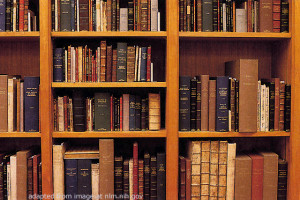Re: Think Tanks and U.S.-Russian Confrontation

Date: Mon, 17 Aug 2015 1
From: Robert Legvold <rhl1@columbia.edu>
Subject: re think tanks and US-Russian confrontation
[Robert Legvold is Marshall D. Shulman Professor Emeritus in the Department of Political Science at Columbia University, where he specialized in the international relations of the post-Soviet states. He was Director of The Harriman Institute, Columbia University, from 1986 to 1992. Prior to coming to Columbia in 1984, he served for six years as Senior Fellow and Director of the Soviet Studies Project at the Council on Foreign Relations in New York.]
Today’s Johnson’s Russia List [#159] carried the item in Russia Direct on think tanks and the pressures they are under in the current political climate. The piece includes one or two quotes from me, but, in response to Pavel Koshkin’s request, I had sent a longer comment with a concluding thought that I hope reflects the sentiment of colleagues who also worry about what is happening not only to the public, but to the professional discussion in this country. A sorry trend more than exceeded on the other side.
—
Of the many characteristics marking the contemporary U.S.-Russian confrontation reminiscent of the Cold War, one of the more disagreeable is the poisoning of the discourse in both countries. In a way that we have not seen since the 1950s, reprised in the late 1970s and early 1980s, too many Americans who disagree with fellow Americans and too many Russians who disagree with fellow Russians prefer to slander rather than argue with those with whom they disagree. Hence, as well illustrated in this article [the Daily Beast essay], rather than quarreling with the analysis of Thomas Graham and the specialists from the Carnegie Endowment, better to simply imply that what they say and write is at the bidding of specialized U.S. business interests, Russian intelligence agencies or their adjuncts, and the Russian government itself. Roughly the equivalent, indeed, worse is happening in reverse on the Russian side. That some will think innuendo and slander is a better way to fight their wars than reasoned argument is not surprising in times like these. That U.S. editors who see their publications as stimulating a more diverse, lively, and responsible foreign policy debate would publish them is.
As for the attack on the Carnegie Moscow Center and Dmitry Trenin personally, it is symptomatic of the excesses to which warring rather than arguing has gone. Most of us in the United States who know and respect the Center and Trenin recognize the pressure that it is under when parliamentarians in the Federation Council insist that it be included on the list of “undesirable organizations”-itself a reflection of the appalling state of attitudes and discourse in Russia. Yes, that has introduced an element of caution in the analysis done by Carnegie scholars to the discomfort of former talented Carnegie analysts who have sharper pens when criticizing Russian political trends. But, unlike those on the U.S. side waging a new Russia-U.S. cold war, others should not ignore the full reality: first, Trenin, who is among the premier analysts of Russian foreign policy not only in Russia but anywhere is about explaining, not justifying Russian thinking and actions. Some on the Russian side-including former colleagues-may disagree with him, but none would for moment suggest that what he writes is whispered into his ear by the authorities. For those of us on the outside, to blacken his name, rather than value what he can teach us about the mindset in Moscow, is actually to weaken the resources available to U.S. policy makers.
Second, anyone who pays attention to the work of the scholars at the Carnegie Moscow Center knows that they have not avoided aspects of Russian foreign policy deserving to be questioned or criticized. In their articles, books and blogs, they have challenged Russia’s approach to ISIS and the Syrian civil war, written about the vulnerabilities and failings in Russia’s embroilment in the Donbas war, and even suggested that the growing reach of Russian state power risks bringing the country back into the world of “totalitarianism.” Within the universe of Russian public policy organizations and think tanks, in terms of the diversity, timeliness, and sophistication of its publications, the Carnegie Moscow Center’s only rival is the Russian International Affairs Council.
How then should analysts and organizations attempting to bring perspective and balance in this toxic atmosphere behave? Russians will have to decide for themselves. In the United States most will not think it worth responding to those who disdain an honest argument and settle for besmirching those with whom they disagree. But degrading the discourse in the United States and coarsening the way the discussion is conducted are clearly not in the country’s interest. One would hope that sooner rather than later the professional community and responsible parts of the media will begin speaking out against these trends.
